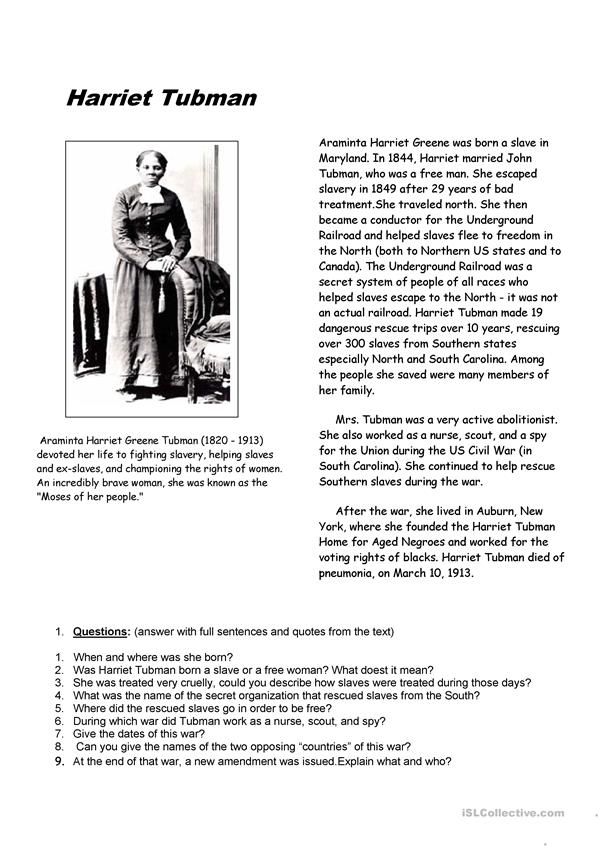In the realm of spirituality and social justice, the Bahá’í Faith offers profound teachings that resonate with the legacy of prominent historical figures, such as Harriet Tubman. Tubman, an emblematic figure in the abolitionist movement, dedicated her life to freeing enslaved individuals through the Underground Railroad. Her indomitable spirit serves as a poignant backdrop to explore the teachings of the Bahá’í Faith, particularly through the lens of personal narratives and transformative lessons. This exploration sheds light on the interconnectedness of personal actions and global change, illustrating core Bahá’í principles.
The life of Harriet Tubman is characterized by courage, resilience, and a staunch commitment to justice. These qualities are mirrored in Bahá’í teachings that emphasize the importance of individual agency in fostering a unified and equitable society. One of the fundamental tenets of the Bahá’í Faith is the belief in the oneness of humanity. This principle posits that all people, regardless of race, religion, or background, are interconnected and share a common destiny. Tubman’s relentless fight for freedom exemplifies this ideal, as she risked her life not just for her own liberation, but for the liberation of countless others.
Bahá’í teachings also accentuate the concept of service to humanity. Tubman’s life is an archetype of service, evidenced by her selfless endeavors to guide others to safety. The Bahá’í Faith encourages individuals to adopt a spirit of service, seeing it as an avenue for personal growth and societal improvement. This commitment to service is not relegated to grand gestures; it encompasses everyday acts of kindness and support within one’s community. In this light, the legacy of Tubman inspires individuals to contemplate how they might contribute meaningfully to the world around them.
In addition to service, the Bahá’í Faith underscores the importance of education. Knowledge is viewed as a vital tool for empowerment and social transformation. Just as Tubman possessed both practical knowledge of the Underground Railroad and a determination to educate others about their rights, Bahá’ís believe in actively disseminating knowledge to uplift marginalized communities. The pursuit of education is not solely for personal benefit; it is also a collective responsibility. By fostering a culture of learning and inquiry, individuals can work together to dismantle ignorance and prejudice, thus fostering a more just society.
Another essential teaching of the Bahá’í Faith is the encouragement of unity in diversity. Tubman’s experiences highlight the necessity of collaboration across varying backgrounds and beliefs. Her work involved individuals from a range of racial and socio-economic backgrounds, all joining forces for a shared cause. This collaboration reflects the Bahá’í vision of a world where diversity enriches communal life rather than divides it. The teachings advocate for the acceptance of differences in culture, thought, and tradition, recognizing that embracing this plurality strengthens social fabric.
The themes of perseverance and transformation are pivotal within both Tubman’s life and the Bahá’í teachings. Eschewing despair in the face of adversity, Tubman exemplified resilience, navigating myriad obstacles to fulfill her mission. Similarly, the Bahá’í Faith teaches that challenges are integral to spiritual development. Individuals are encouraged not only to confront adversity but to comprehend it as an opportunity for personal and collective growth. This perspective cultivates a mindset that views setbacks as necessary components of one’s journey toward higher realities.
Furthermore, the Bahá’í concept of justice deeply correlates with Tubman’s legacy. Justice is integral to establishing world peace, according to Bahá’í principles. Tubman’s work was fundamentally oriented around correcting systemic injustices and restoring dignity to individuals denied their rights. The teachings call for active participation in the quest for justice, urging individuals to stand against oppression in all its forms. In this sense, Harriet Tubman personifies the essence of justice—it is not merely a social construct but a divine attribute that individuals are called to embody within their lives.
The transformative power of love is another central tenet of the Bahá’í Faith, mirroring Tubman’s dedication to her fellow human beings. Love is a catalyst for change, capable of soothing divisions and fostering reconciliation. Tubman’s unwavering compassion for others propelled her actions. Her love for humanity impelled her to risk her life repeatedly for the sake of freedom. In embracing love as a guiding principle, individuals can navigate the complexities of human interactions, transcend cultural barriers, and cultivate deeper connections.
Ultimately, the lessons gleaned from the life of Harriet Tubman resonate profoundly with the teachings of the Bahá’í Faith. By examining her legacy through this spiritual lens, it becomes evident that the journey toward a more just and unified world is paved with courage, service, education, and love. The Bahá’í principles serve not only as a framework for ethical living but also as a call to action, inspiring individuals to pursue change and uphold the dignity of all humanity. In teaching us to aspire to these ideals, Tubman’s life invigorates the Bahá’í teachings, encouraging us to carry forward the torch of justice and unity in an ever-evolving world.
